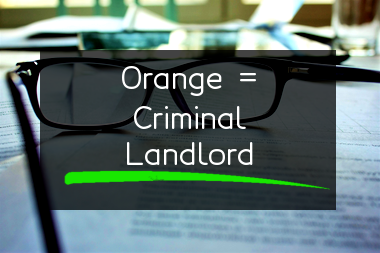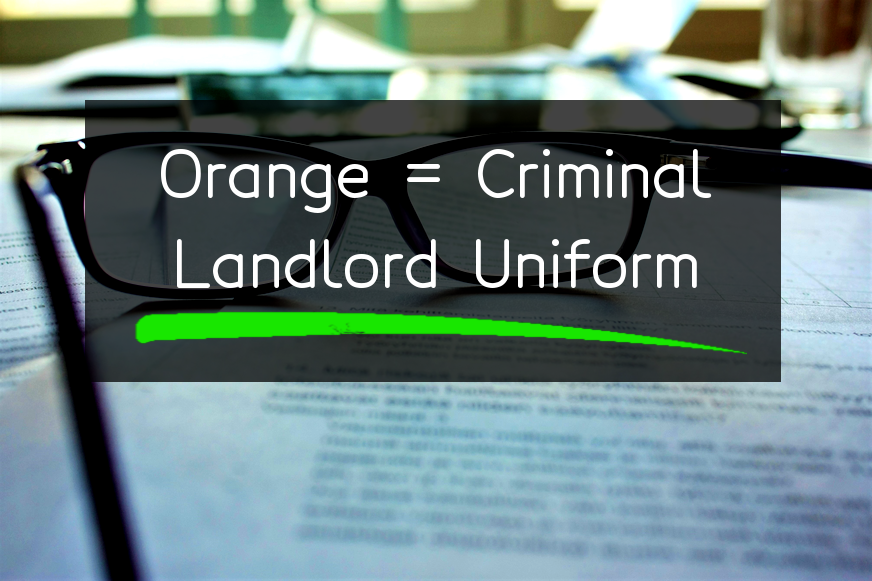New laws criminalizing landlords refer to laws that impose criminal penalties on landlords who violate certain provisions related to tenant rights, housing standards, or rent control. These laws are intended to increase accountability and protect tenants from abusive or negligent behavior by landlords. The specific provisions and penalties vary by jurisdiction, but examples may include fines, imprisonment, or license revocation for landlords who engage in activities such as illegal evictions, retaliation against tenants, discrimination, or failure to maintain safe and habitable housing conditions.
Supporters of these kinds of laws argue they are necessary to ensure fair treatment of renters and maintain the overall health and safety of communities. Critics claim that they may lead to unintended consequences, such as discouraging property owners from renting or maintaining affordable housing, thereby exacerbating the housing shortage or driving up costs.
Tenant Crimes, Landlord Liability
Tenant crimes refer to illegal activities committed by a tenant while occupying a rental property. Examples of tenant crimes include drug use, physical assault, theft, destruction of property, and disturbing the peace. In such cases, landlords may be held liable for the actions of their tenants.
Landlord liability arises when a landlord is deemed responsible for injuries or damages caused by a tenant's criminal behavior. Landlords have a duty to provide a safe and habitable living environment for their tenants. Therefore, if a landlord fails to take reasonable steps to prevent crimes on their property, they may be held liable for damages caused by a tenant's criminal actions.
Landlords can reduce their liability by conducting background checks and screening tenants before renting out their properties. They should also take measures to ensure the safety of their tenants, such as installing security cameras, maintaining well-lit parking lots, and promptly responding to reports of illegal activities on their property.
In summary, tenant crimes can expose landlords to legal liabilities. Therefore, landlords have a responsibility to take reasonable precautions to ensure the safety and security of their tenants.
Criminals: A ?Protected Class? in Fair Housing?
No, criminals are not a "protected class" in fair housing. The Fair Housing Act prohibits discrimination based on race, color, national origin, religion, sex, familial status, and disability. Criminal history is not considered a protected characteristic under this act. However, some states and cities have laws that prohibit discrimination against individuals with criminal records in housing. It is important to check the local laws in your area to understand the specifics of fair housing protections.
Tenants? Dogs a Landlord' Responsibility Too
It is important for landlords to understand that their responsibility towards their properties extends beyond just physical upkeep and maintenance. This includes the responsibility of ensuring that the tenants' dogs are safe and well-cared for while on the premises.
Landlords should ensure that their rental agreements include clauses outlining all the expectations and rules when it comes to pet ownership, such as picking up after the dog and keeping it on a leash at all times. Landlords should also ensure that their properties are safe and secure for pets, including making sure there are no hazards or escape routes that could put the dog in danger.
In cases where tenants neglect their dogs or violate the rental agreement's pet rules, landlords should take appropriate action and communicate responsibly with their renters to resolve issues before they escalate. This includes making sure that tenants understand the implications of failing to provide proper care for their pets and following up with them to ensure they are complying with the rental agreement.
Ultimately, landlords have a responsibility to ensure the safety and well-being of all occupants on their properties, including tenants' furry companions. By taking the necessary steps to ensure that pets are well-cared for and in compliance with rental agreements, landlords can create a better living environment for both tenants and their pets.
Everyone Loves to Sue Landlords
I can provide an objective explanation to the statement.
The statement "Everyone loves to sue landlords" may be an exaggeration. However, there are a few reasons why tenants might take legal action against landlords:
- 1Disputes over rent or security deposit: Landlords may withhold security deposits and rent payments without adequate justification. They may also charge excessive fees and unfairly raise rent prices. Tenants may sue landlords to recover their money.
- 2Housing conditions: The law requires landlords to provide safe and habitable living conditions for tenants. If they fail to do so, tenants may file a lawsuit to force landlords to fix any problems.
- 3Discrimination: It is illegal for landlords to discriminate against tenants based on race, ethnicity, gender, and other characteristics. If tenants feel that they have been discriminated against, they may sue landlords for damages.
Overall, tenants may take legal action against landlords if they feel that their rights have been violated or if they have been mistreated in any way.
Forced to Keep a Tenant?
Generally speaking, if a landlord is forced to keep a tenant, it could be due to the terms of a legal agreement or contract that has been signed between the two parties. These agreements are often put in place to protect the rights of both tenants and landlords, and may stipulate certain conditions under which a tenant may be removed from the property.
For example, in some jurisdictions, tenants may be entitled to a certain amount of notice before they can be evicted, regardless of their behavior. In other cases, the landlord may be legally required to provide a specific reason for evicting a tenant, such as non-payment of rent or causing damage to the property.
Ultimately, if a landlord is forced to keep a tenant that they would rather remove, they may need to seek legal advice to ensure that they are complying with all relevant laws and regulations. They would need to find ways to address the issue, and remedy the cause of the issue so that it doesn't happen again in the future.
Just one more thing: if you liked the article, please like us on social media and share this article with friends.



